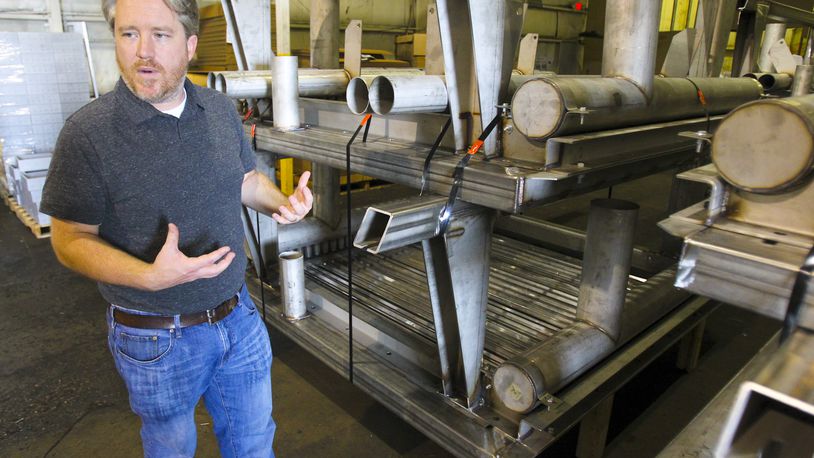Marvin Cunningham, president of West Chester Twp.’s Long-Stanton Manufacturing Co., is worried about the next four years.
“I think overall Trump has ceded American leadership in this area,” Cunningham said Tuesday.
RELATED: West Chester company moves manufacturing work back to U.S.
And if the president re-negotiates the North American Free Trade Agreement — which governs trade between the U.S. and Canada and Mexico — Cunningham added: “That’s going to hurt my customers dramatically, which in turn will hurt me and my employees.”
With 35 employees, Long-Stanton is a metal stamper and sheet metal fabricator, working for manufacturers that trade globally, he said. He has customers in aviation and other industries. The Butler County company also has an office in the ZhongLou economic development zone in China, according to its website.
MORE: What is TPP, and why is it important?
But the issue is far from simple. A March 2016 study from the labor-leaning Economic Policy Institute (EPI) found that in 2015, the U.S. trade deficit with TPP countries translated into 2 million U.S. jobs “lost,” with 1.1 million of those in the manufacturing sector.
Across Ohio, 112,500 net jobs were displaced by TPP trade, affecting 2.16 percent of the state’s total jobs, the study said.
In the study, the EPI said the treaty “lacks an absolutely key component to keep it from doing potential damage to the U.S. economy. The missing piece of this trade and investment deal is a set of restrictions and/or enforceable penalties against member countries that engage in currency manipulation.
“Currency manipulation is one of the key driving forces behind the high and rapidly rising U.S. trade deficit with the 11 other members of the TPP,” the study said.
About the Author
